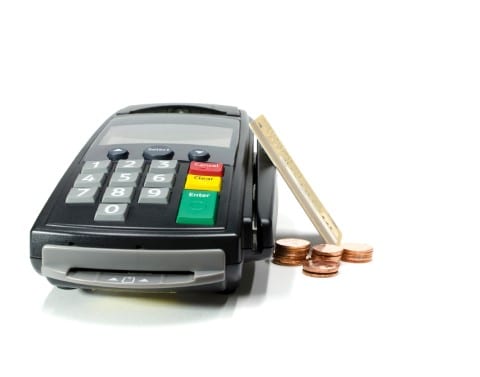
What Impacts Your Credit Card Processing Fees And How to Lower Them
My name is Danielle Mercer, and I’ve spent the last 15 years helping small and mid-sized businesses navigate one of the most confusing (and expensive) parts of running a company—credit card processing. As a graduate of the University of Pennsylvania with a bachelor’s degree in Finance, and the owner of a successful merchant services consulting firm in North Carolina, I’ve seen firsthand how unpredictable and bloated payment processing costs can cripple profit margins. That’s why I also write for Side By Side Reviews, where I aim to help business owners cut through the fine print and take back control of their payment systems.
If you’re wondering why your credit card processing fees seem to creep higher every month—or how you can bring them down—this guide is for you.
What Actually Makes Up Your Credit Card Processing Fees?
Most business owners assume there’s just a flat fee per transaction, but it’s a bit more complicated. Every time a customer swipes or taps, you’re being charged a combination of three main components:
Interchange Fees
This is the non-negotiable fee set by the credit card networks (like Visa, Mastercard, etc.) and paid to the customer’s issuing bank. Rates vary based on card type (debit, credit, rewards), transaction method, and business category.
Assessment Fees
These are set by the card brands themselves (e.g., Mastercard or Visa) and are also non-negotiable. Think of this as their cut of every transaction—usually a small percentage.
Processor Markup
This is the only portion that you can really control. It’s the fee your credit card processor adds on top to make their money. This could be a flat rate, percentage, or tiered depending on your pricing model.

Key Factors That Influence Your Credit Card Fees
Several elements behind the scenes determine how much you’re charged per transaction:
Your Industry and Risk Level
High-risk industries like travel or adult services often pay more due to higher fraud rates and chargebacks.
Type of Cards Accepted
Business and rewards cards carry higher interchange rates compared to basic debit cards. The more premium the card, the more you’ll pay.
How You Accept Payments
Card-present transactions (like in-store EMV chip readers) are usually cheaper than keyed-in or online payments, which are considered higher risk.
Volume and Average Ticket Size
Higher monthly volumes and larger average ticket sizes can help you negotiate lower rates. Processors want to work with businesses that bring in more transactions.
Pricing Model Chosen
-
Flat-rate pricing is simple but often more expensive overall.
-
Interchange-plus is transparent and usually cheaper in the long run.
-
Tiered pricing can be confusing and prone to hidden costs.

How to Lower Your Credit Card Processing Fees
Now to the good part: trimming those costs. Here are a few strategies I help my clients implement to reduce what they’re paying without sacrificing service quality.
1. Negotiate Your Rates
Don’t accept the first rate a processor gives you. If you have steady volume and low chargebacks, use that as leverage to negotiate better terms.
2. Understand Your Statement
Most business owners skip this step because it’s filled with jargon. But reviewing your merchant statement helps identify hidden fees, tiered pricing traps, or unexpected rate increases.
3. Avoid Leased Terminals
Leasing a card reader might sound affordable, but over time it’s significantly more expensive than buying one outright. Avoid equipment fees where you can.
4. Use an Address Verification System (AVS)
For card-not-present transactions, this reduces fraud risk and can qualify you for lower interchange rates.
5. Avoid “Qualified/Non-Qualified” Pricing
Tiered pricing structures often mask your true processing costs. Switch to interchange-plus for greater transparency and long-term savings.
6. Shop Around Regularly
Even if you’re happy with your processor, get quotes every 12–18 months. The payment industry is competitive—don’t leave money on the table.

Hidden Fees to Watch Out For
One of the most frustrating aspects of credit card processing is the surprise fees that show up long after the contract is signed. Here are a few common culprits:
-
PCI Compliance Fees
Charged annually or monthly, even if you’re already compliant. -
Statement Fees
A $5–$10 monthly charge for receiving your bill, often avoidable with e-statements. -
Batch Fees
A small fee charged every time you “close out” your daily transactions. -
Monthly Minimums
If your transaction volume doesn’t hit a set threshold, you pay the difference.
These charges might seem small individually, but they add up fast—especially for small businesses.
The Bottom Line
Credit card processing fees are a necessary evil in today’s business landscape, but that doesn’t mean they should drain your profits. Understanding what impacts your fees—and how to proactively manage them—can save your business thousands each year.
Whether you’re running a brick-and-mortar shop or an e-commerce brand, the key is knowing your numbers, choosing the right processor, and continuously auditing your setup.
If you need help reviewing your statement or want a second opinion before signing a new processing agreement, don’t hesitate to reach out. I’ve helped hundreds of businesses slash their fees without changing how they operate—and I’d be happy to help you do the same.
Author: Hudson Piccini
Hudson Cynar, a Harvard University alumna and the owner of three prosperous enterprises, is a distinguished business consultant, author, and writer. Her expertise spans multiple business sectors, with a particular emphasis on storage containers, commercial copiers, payroll services, and medical billing software. Dedicatedly investing thousands of hours into product and service research, Hudson crafts insightful reviews to guide entrepreneurs in making informed decisions for their businesses.
